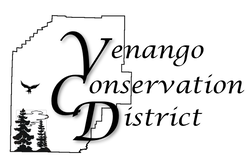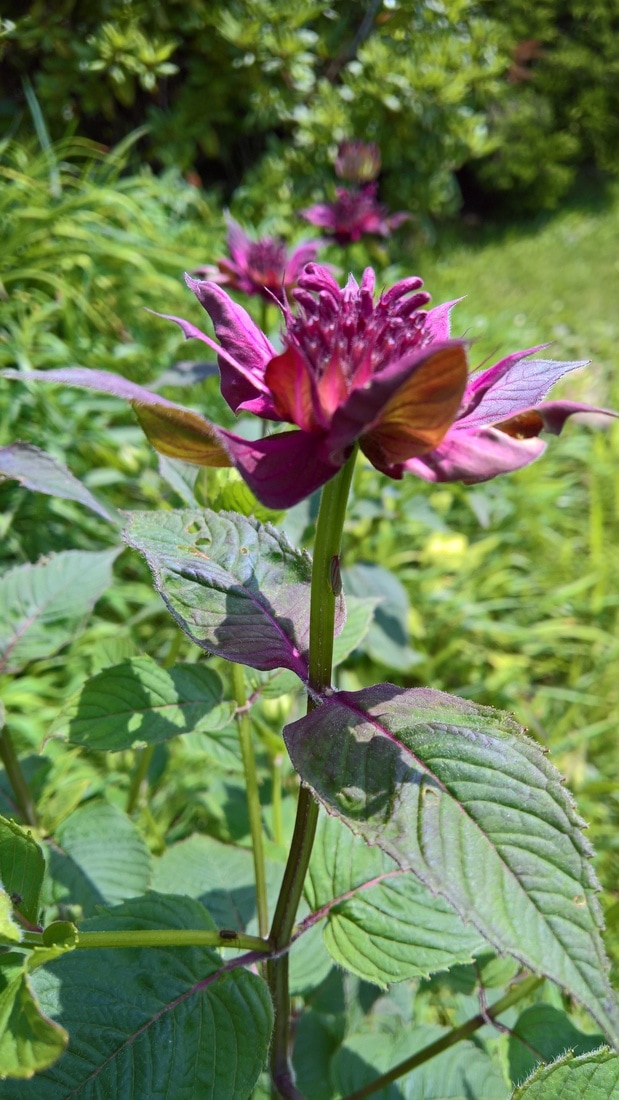|
Pennsylvania DCNR says that at the beginning of the 21st century, about 1,300 species of nonnative plants existed in Pennsylvania outside of gardens, parks and agricultural lands. That means that 37 percent of Pennsylvania’s total wild plant flora consists of nonnatives. DCNR says that more nonnative plants are introduced every year. A nonnative plant is one which was brought into the state and eventually became established in the wild.
Pennsylvania’s native plants number 2,100 in the wild. They include ferns, mosses, grasses, sedges and rushes, wildflowers, woody trees, shrubs and vines. Native plants are those plants growing in Pennsylvania before European settlers arrived. Native plants evolved in Pennsylvania and are therefore well adapted to the area soils and climate. That means they are easy to care for once established. Many natives require little to no additional fertilizer and extra watering. Landscaping with native plants means you can use less fertilizer and less water to keep them looking happy and healthy in your garden. If everyone were to utilize native plants in their gardens, there would be less chemicals like fertilizers and pesticides washing away to local waterways, which means a reduction in water pollution. According to the Penn State Cooperative Extension, another big reason to landscape with native plants is biodiversity. 90 percent of our native insects feed on only three or even fewer families of plants. Our native insects rely heavily on native plants. If our native insects cannot feed on growing nonnative plant populations, then by extension, native birds would have fewer insects to feed on. Penn State Extension says that what we plant in our yards today will determine what kind of wildlife will be living in Pennsylvania. By planting native species we can help Pennsylvania’s natural history and diversity sustain. Pollinating insects keep our fruit, vegetable and seed crops going. Bees, butterflies, moths, beetles, birds and even bats rely on pollen and nectar. Food from native plants will keep our native ecosystem going. The Venango Conservation District is pleased to announce that a grant from the Pennsylvania Association of Conservation Districts has been received. Funding is provided through the Pennsylvania Department of Environmental Protection under Section 319 of the Clean Water Act administered by the US Environmental Protection Agency. The district will be working to educate home/land owners and the general public on how to landscape with native plants rather than exotic plants. A workshop will be held later in the summer. Three outdoor brochure holders have already been installed throughout Two Mile Run County Park. These brochure holders contain a hand-out sheet highlighting the native plants in bloom each month on the Park. Informational signs demonstrating how native plants reduce nonpoint source pollution in the watershed are also installed on the Park. Want to learn more about using native plants in your landscaping? There are many great websites to use for research. The Pennsylvania DCNR webpage on Landscaping with Native Plants is www.dcnr.state.pa.us/forestry/plants/nativeplants. The Penn State Cooperative Extension webpage on Pennsylvania Native Plants for the Perennial Garden is located at http://extension.psu.edu/plants/gardening/fact-sheets/perennial-garden/pa-native-plants-for-the-perennial-garden/pdf factsheet.
9 Comments
7/23/2017 11:40:05 am
Shaping of your Bonsai tree should really begin even before you purchase the Bonsai tree. The first step in shaping your Bonsai begins with a plan.
Reply
10/29/2017 12:39:30 pm
Planting more trees and other plants is surely the only way we can make a huge difference in saving our planet. Many people are trying to ignore the fact that we are the sole reason why the planet Earth is slowly losing its life. We are the ones responsible why many animals are now extinct and some are continue dying. We are the ones responsible for the climate change we are experiencing right now. We must act together to save the world or else we will all die.
Reply
9/7/2017 06:59:17 am
very nice information . like reading this blog
Reply
9/28/2017 03:11:47 am
If you live in South Africa, you will be acutely aware of the crime situation. People's homes are broken into whilst they are away for only an hour, and businesses are never safe. It is an unfortunate fact that South Africans now have to live in homes that are protected by high walls, and security measures that prevent people from trying to access their properties by climbing these high walls.
Reply
8/31/2018 03:25:05 am
I was very pleased to find this web-site.I wanted to thanks for your time for this wonderful read!! I definitely enjoying every little bit of it and I have you bookmarked to check out new stuff you blog post.
Reply
9/14/2018 02:56:53 am
Tropical resorts in the Islands represent some of the most popular vacation destinations in the world. Every year millions of busy, over-stressed people choose to spend their precious vacation time unwinding at tropical locales. Why? What makes these places so irresistible? Could it be the lifestyle ideal they represent, a setting where the pressures of everyday life can just be forgotten, replaced by an attitude of contentment, tranquility, and overall well-being.
Reply
2/27/2019 11:11:27 pm
Planting more trees and other plants is the only way we can save our planet. By just planting more trees, it will make a huge difference in saving planet Earth. People are trying to ignore the fact that we are the main reason why the planet Earth is slowly losing its life. We are the ones responsible why many animals are now extinct and some are continue dying. We are the ones responsible for the climate change we are experiencing right now.
Reply
5/20/2020 11:42:51 pm
Your content is nothing short of bright in many forms. I think this is friendly and eye-opening material. I have gotten so many ideas from your blog. Thank you so much.
Reply
11/30/2023 05:45:16 am
I am glad to know native plants and landscaping go hand in hand,. Which native plants have you incorporated into your landscape, and what benefits have you observed?
Reply
Leave a Reply. |
CATEGORIESs
All
Archives
July 2024
|


